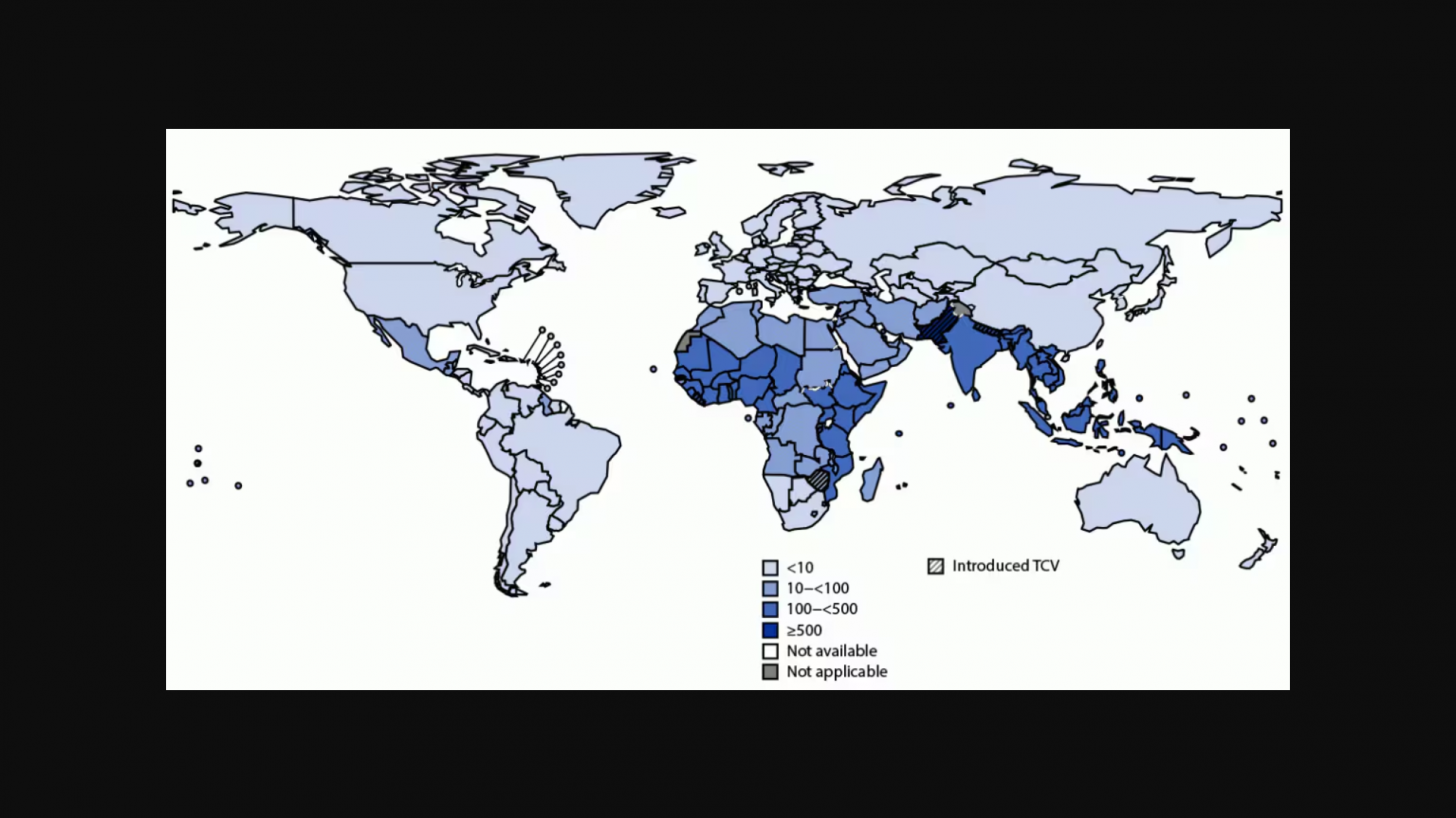Typhoid Vaccination Found Effective and Safe for International Travelers

Typhoid fever remains a life-threatening systemic infection usually caused by ingesting contaminated food or water. Urbanization, with associated overcrowded populations and inadequate water and sanitation systems, has increased the global burden of typhoid.
According to the World Health Organization (WHO), an estimated 9 million people get sick from typhoid, and over 100,000 people die yearly.
To reduce the impact of this public health concern, the WHO recommends four different Typhoid Conjugate Vaccines (TCV). These vaccines have been established as safe, well-tolerated, and effective.
A recent long-term study published by the International Journal of Infectious Diseases, Volume 147, October 2024, determined children aged less than ten who were vaccinated with a single dose of TCV were 95.8% seroconverted at 4-6 weeks, and 75.6% remained above the seroconversion threshold for four years.
This finding demonstrates a durable immunological response in a typhoid-endemic setting.
At baseline, antibody decay was more pronounced in the youngest children, six months to two years of age; at four years after vaccination, nearly 40% in this subcohort had dropped below the seroconversion threshold.
Nine breakthrough culture-confirmed typhoid cases were observed during the 4-year follow-up period; all were among children who had seroconverted at 4-6 weeks, and most of the infections occurred more than two years after vaccination.
These researchers wrote, 'Our results are consistent with other studies reporting on the immune response to TCV in endemic settings.' This work was supported by the Bill & Melinda Gates Foundation [grant number: INV-000640].
A study published in The Lancet Global Health in 2022 also concluded one dose of TCV can offer disease immunity for up to three years in children as young as nine months old.
"Once infected during the first 12 to 48 hours after infection, a person may not exhibit any symptoms, yet the disease can still be transmitted to others," commented Duellyn Pandis, DNP, MS, APRN, FNP-C, Certificate in Travel Health®.
"Some individuals who have recovered from typhoid fever may still carry the bacteria in their bodies even after treatment. These individuals are known as chronic carriers and can spread the bacteria in their stool without showing symptoms."
"Prevention by vaccination is key to reducing the spread of this disease," added Pandis, President & CEO of Passport Health of Tampa Bay.
The U.S. CDC previously issued a Travel Health Notice regarding an outbreak of extensively drug-resistant (XDR) typhoid fever in Pakistan that began in 2016, and cases continue to occur. Cases of XDR typhoid fever continue to be reported worldwide, mostly among travelers returning from Pakistan.
The CDC's Advisory Committee on Immunization Practices recommends vaccination, oral or injection, for people two years and older traveling to areas where the diseases are endemic or an outbreak is occurring.
In the U.S., TCVs are generally offered at travel clinics and pharmacies.
Note: Vaccine expert quote added on Sept. 23, 2024.
Our Trust Standards: Medical Advisory Committee























